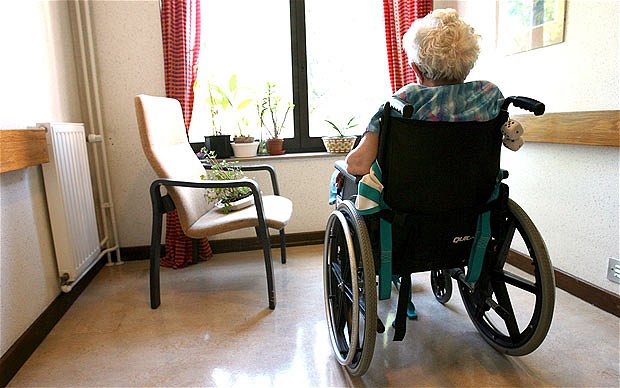Headlines I Wish I Hadn’t Seen
Seniors robbed of savings accounts in more than 1,500 recent cases in nursing homes.
The nu mber of visitors to the federal government’s HealthCare.gov website dropped 88 percent between Oct. 1 and Oct. 13.
mber of visitors to the federal government’s HealthCare.gov website dropped 88 percent between Oct. 1 and Oct. 13.
99.6% of Healthcare.gov visitors didn’t enroll during ACA debut.
Financial columnist: work less, earn less and get more ObamaCare subsidy.
Over half of fast food workers rely on public assistance programs.


“Seniors robbed of savings accounts in more than 1,500 recent cases in nursing homes.”
Wow. Makes sense that this would happen, though. The money is just sitting there!
Money is usually safer in a mattress than in someone else’s hands.
I’m still waiting on my return from Madoff. He’ll come through, he always does.
I find these anecdotes unbelievable. In one case, the 30-something lady in charge of the trust funds studiously provided receipts for her purchases — so the auditors would not sense impropriety. One purchases was a $90 pair of women’s designer jeans at The Buckle charged to the account of an elderly male, double-leg amputee. In another case, she reimbursed herself for gear purchased at Northface and even for a baseball bat for her kid.
Her purchases may not have triggered an auditor’s suspicion due to missing receipts, but she essentially documented her fraud for investigators. Why would there not be any mechanism to document the authority for making the purchases?
It does seem like a foregone conclusion that people would raid these.
“The number of visitors to the federal government’s HealthCare.gov website dropped 88 percent between Oct. 1 and Oct. 13.”
Everybody wanted to see what all the hubbub was about. Now that the novelty has worn off, it’ll end up just like every other government propagated failure.
See also:
“99.6% of Healthcare.gov visitors didn’t enroll during ACA debut.”
“Financial columnist: work less, earn less and get more ObamaCare subsidy.”
Why not? That’s how the incentives have been structured. You can’t blame anybody for doing what is in their best interest. Someone has to do it.
I’m glad to see you finally admit that Obamacare is in people’s best interest.
Haha, oh Stewie, you can always been counted on for a hilarious misinterpretation.
“The nucare-home_2063592bmber of visitors to the federal government’s HealthCare.gov website dropped 88 percent between Oct. 1 and Oct. 13.”
I guess the reporters finally buzzed off.
“More than 1 in 4 patients on Medicare’s prescription drug plan filled at least one prescription for medications long deemed high-risk for seniors.”
I have no problem with access to high-risk medical services or prescriptions, but should they be publicly provided? I’m leaning towards no.
Why not? Life or death, I’d expect people to choose life, so why not help them?
Because we are footing the bill. If someone wants to take risks with their own life, that is their business, but they aren’t going to do it on my dime.
So you’d rather people die than help them pay for medicine? Harsh.
I would love to help people pay for medicine, but that means I get a say in what that medicine is.
“Over half of fast food workers rely on public assistance programs.”
Why are so many fast food workers adults with families? How about we focus on allowing people to develop skills at a young age so that they aren’t working fast food when they are older.
Because as much as we don’t like to admit it, our system isn’t designed to create wealth in a great number of people.
Can’t deny that there is income inequality, but I would deny that that is necessarily a bad thing. A rising tide lifts all boats. As income inequality has grown worse, overall wealth has increased for all classes of people.
Yet are we going to be happy with this? Is that really a satisfying answer? Can we really say its right that a CEO makes 500 times what one of his workers makes?
Our system doesn’t act equitably, or people would make what they actually deserve. By adhering to the idea that the market will decide the values of people’s work, we end up inherently undermining that same idea. The market is only a result of people’s actions; it is not some god-like, self-correcting thing. The more distance there is between the top and bottom, the more society will be entirely in the hands of those at the top.
That isn’t a republic, nor is it a democracy. It’s straight up plutocracy.
Except in a real market the people at the top are only at the top because they are satisfying the needs of everyone below them. Once they stop doing that, they are will quickly fall from the top.
You are right that the market isn’t perfectly equitable, it is just the best thing we have.
Right, these jobs are stepping stones, not end goals. Unfortunately, the more comfortable we try to make fast food workers, the more stratified our labor force skill will become.
Financial columnist: work less, earn less and get more ObamaCare subsidy.
The CBO estimate about 700,000 people would drop out of the labor market and retire early due to the perverse incentives created by generous exchange subsidies.
Wow…
Over half of fast food workers rely on public assistance programs.
Bleeding heart, whiners will undoubtedly complain about the stingy fast food employers. However, they are misguided. Jobs are not an entitlement that guarantees workers a good living. Rather, jobs are a resource workers use to pay their bills. Bad jobs will inevitably result in meager incomes and unmet needs.
The number of visitors to the federal government’s HealthCare.gov website dropped 88 percent between Oct. 1 and Oct. 13.”
So they no longer have system overload to blame for the paltry number of sign ups…